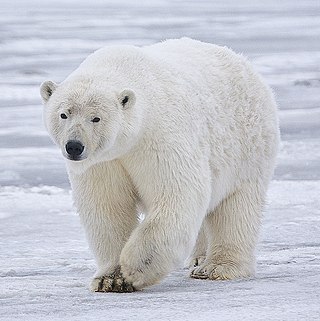Related Research Articles
Donaldson is a Scottish and Irish patronymic surname meaning "son of Donald". It is a simpler Anglicized variant for the name MacDonald. Notable people with the surname include:
Davies is a patronymic surname of Welsh origin. There are two main theories concerning its beginnings, neither of which has been definitively proved. The first theory states that it may be a corruption of "Dyfed", the name of a medieval Welsh kingdom located in what is now Carmarthenshire; however, the origin of the kingdom's name is itself disputed, with the traditional belief being that it was founded by the powerful Irish Déisi dynasty in the third century, or otherwise that it derives from the name of the Demetae people. "Dyfed" as a surname and the related first name "Dafydd" appear from the 12th century, with the latter generally translated into English as "David". The second theory contends that the surname may derive directly from the Hebrew name "David", which is also the name of Wales' patron saint.
Stevenson is an English language patronymic surname meaning "son of Steven". Its first historical record is from pre-10th-century England. Another origin of the name is as a toponymic surname related to the place Stevenstone in Devon, England. There are variant spellings of the name, including Stephenson.

Whyte is a surname and an older English spelling of White, and may refer to:
Paterson is a Scottish and Irish surname meaning "Fathers' son" or "son of Patrick". In Connacht, and Ulster, the name is considered to be an Anglicised form of the Irish language surname Ó Casáin. Paterson is rarely used as a given name. There are other spellings, including Patterson. Notable people with the surname include:
Kay is an English surname. It derives from the Old Breton and Welsh cai and the Cornish key meaning "wharf", or from the Old English coeg meaning "key". The surname is also a diminutive of MacKay and McKay. In England, the Kay(e)s of Lancashire and Yorkshire are believed to be related to the ancient Kaye family of Woodesham, Yorkshire, and there is also a Kay Family Association.
Gray is a surname of English and Scottish origins.
Graham is a surname of Scottish and English origin. It is typically an Anglo-French form of the name of the town of Grantham, in Lincolnshire, England. The settlement is recorded in the 11th century Domesday Book variously as Grantham, Grandham, Granham and Graham. This place name is thought to be derived from the Old English elements grand, possibly meaning "gravel", and ham, meaning "hamlet" the English word given to small settlements of smaller size than villages.
Cannon is a surname of Gaelic origin: in Ireland, specifically Tir Chonaill (Donegal). It is also a Manx surname, where it arose from the Goidelic "Mac Canann" meaning "son of a whelp or wolf", related to the Anglo-Irish "Mac Connon", "Connon" and similar names.
The surname Bruce is a British surname of French origin. In Scotland, it is derived from Clan Bruce. In some cases it is derived from the French place name of Briouze in Normandy, while in others it appears to be derived from Brix in Normandy, or Bruz in Brittany, both in France.
Adamson is an English patronymic surname meaning "son of Adam". It is rare as a given name, although there has been a tradition in some families for the first-born son to be called Adam. People with the surname Adamson include:
Scott is a surname of Scottish origin. It is first attributed to Uchtredus filius Scoti who is mentioned in the charter recording the foundation of Holyrood Abbey and Selkirk in 1120, the border Riding clans who settled Peeblesshire in the 10th century and the family lineage of the Duke of Buccleuch.
Kirk is a surname of Scottish and Northern English origin.
The surname Burns has several origins. In some cases, it derived from the Middle English or Scots burn, and originated as a topographic name for an individual who lived by a stream. In other cases the surname is a variant form of the surname Burnhouse, which originated as a habitational name, derived from a place name made up of the word elements burn and house. In other cases the surname Burns originated as a nickname meaning "burn house". In other cases, the surname Burns is an Anglicised form of the Irish Ó Broin, which means "descendant of Bran". In some cases the surname Burns is an Americanized form of the Jewish surname Bernstein, which is derived from the German bernstein ("amber").
Myles is a Germanic and English surname meaning perhaps "peaceful".
The surname Monaghan is a family name originating from the province of Connacht in Ireland. Mostly a last name.
Mitchell or Mitchel is an English and Scottish surname with two etymological origins. In some cases, the name is derived from the Middle English and Old French name Michel, a vernacular form of the name Michael. The personal name Michael is ultimately derived from a Hebrew name, meaning "Who is like God". In other cases, the surname is derived from the Middle English words michel, mechel, and muchel, meaning "big". In some cases, the surname was adopted as an equivalent of Mulvihill; this English-language surname is derived from the Irish-language Ó Maoilmhichíl, meaning "descendant of the devotee of St. Michael".
Montgomery is a toponymic surname derived from Saint-Germain-de-Montgommery and Sainte-Foy-de-Montgommery in Normandy, France.
English is an English surname meaning English.
Peacock is an English surname. Notable people with the surname include:
References
- ↑ Parkin, Harry (19 August 2021). "Clyde". Concise Oxford Dictionary of Family Names in Britain. Oxford University Press. ISBN 978-0-19-886825-5 . Retrieved 3 August 2024.